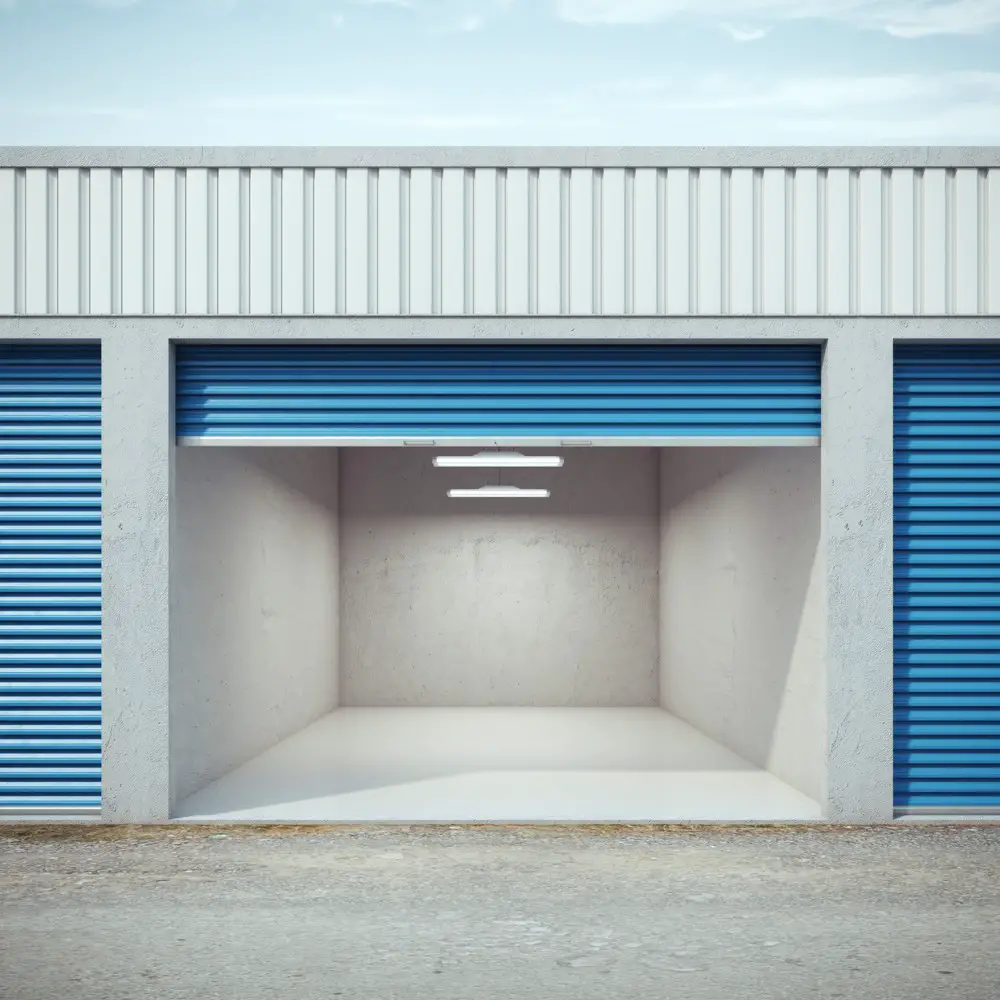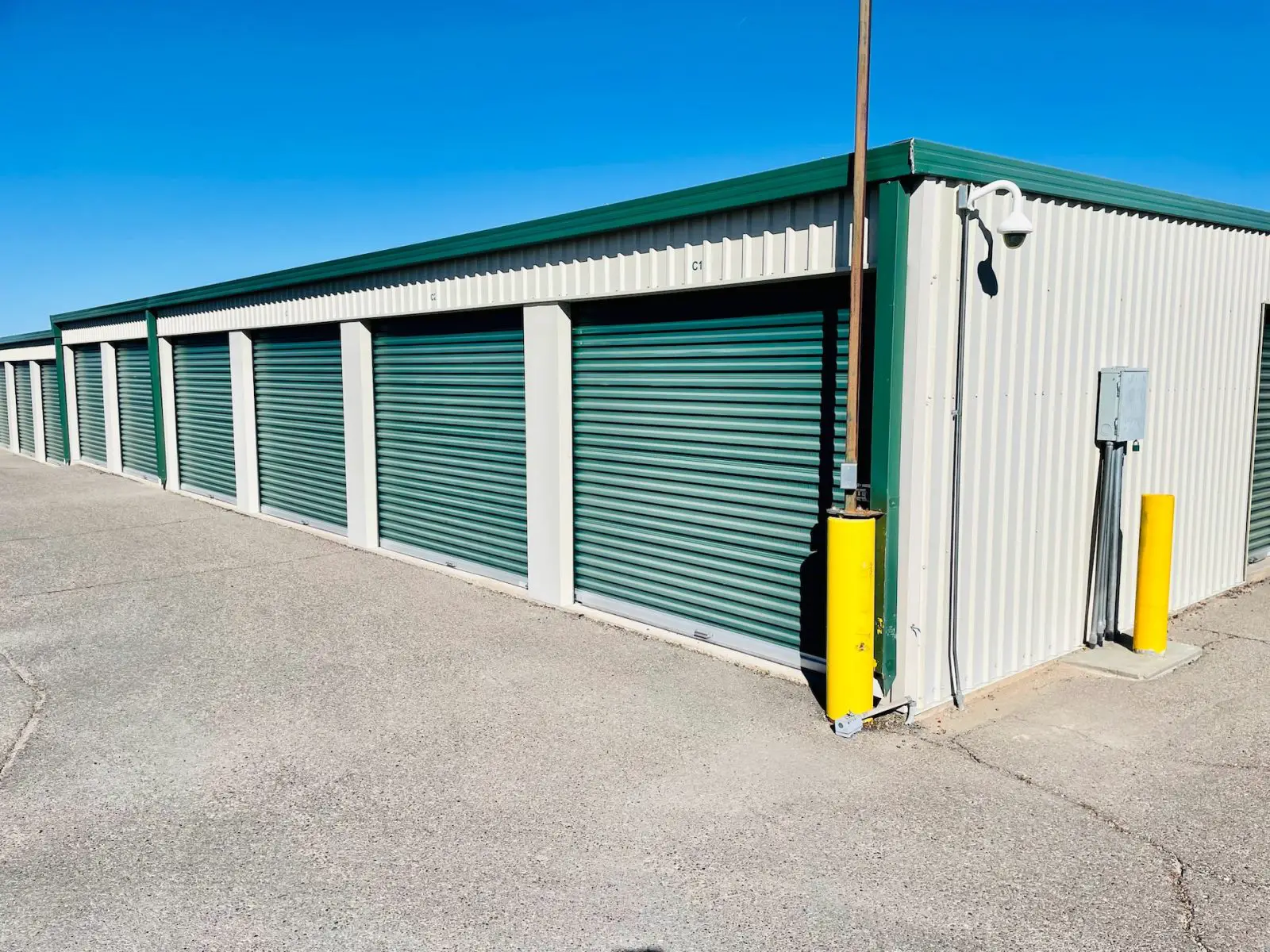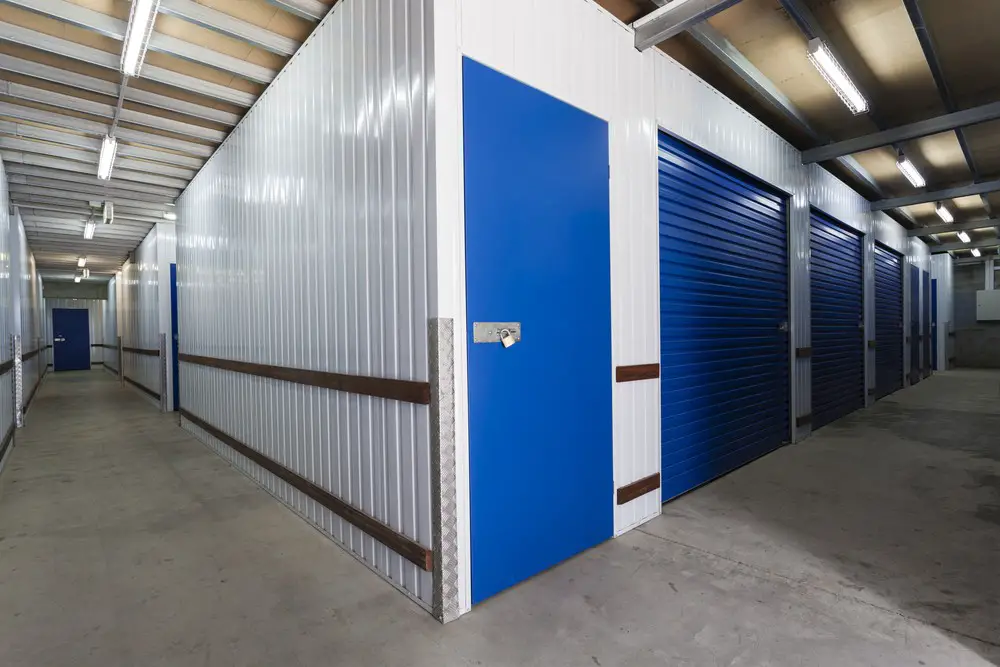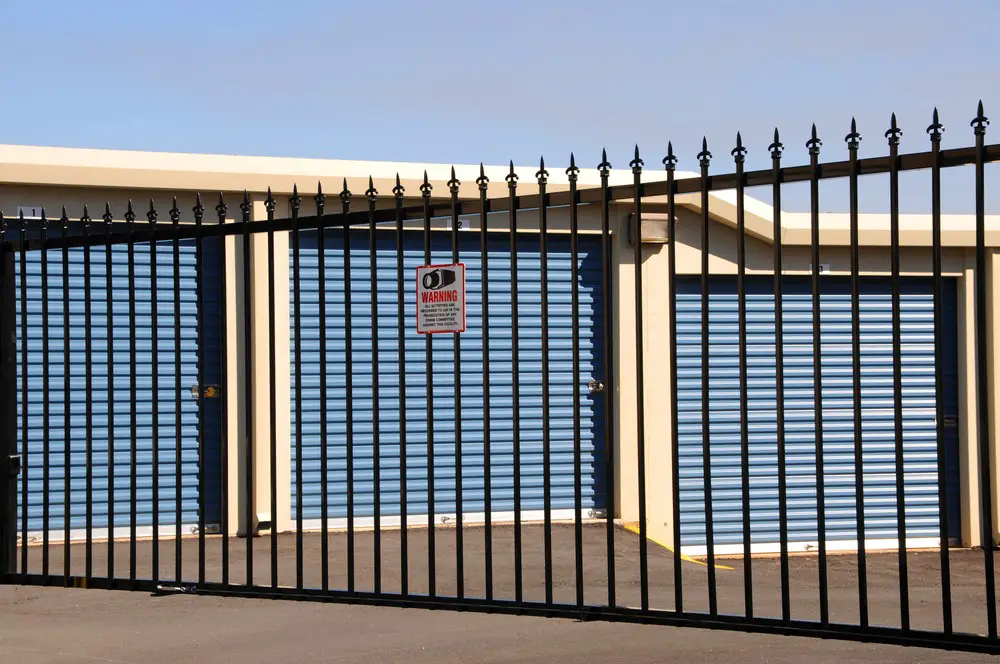As a BetterHelp affiliate, we receive compensation from BetterHelp if you purchase products or services through the links provided
Sleeping in a storage unit might initially seem like an innovative solution for those seeking affordable or temporary living spaces. However, whether one can do so requires a deeper exploration of living in a storage unit’s legal, safety, and living conditions. In this article, we will delve into why people might consider sleeping in a storage unit while addressing such a decision’s concerns and potential consequences.
The underlying intention for storage units is to serve as a secure place to store personal belongings temporarily. However, some individuals might see them as potential housing solutions due to various circumstances, such as financial strain or housing difficulties. It’s important to note that living in a storage unit was never the intention of these spaces, and thus, they lack the necessary amenities and could pose legal and safety issues.
Key Takeaways
- Living in a storage unit is neither legal nor safe, leading to potential legal and safety issues.
- Sleeping in a storage unit does not provide the necessary amenities for comfortable living and might violate the lease agreement.
- Considering alternatives like shared housing or temporary shelters can be a better option for those seeking affordable living situations.

Legality of Sleeping in a Storage Unit
Ah, the age-old question about storage units – can you sleep in one? Let’s dive right into the legalities surrounding this rather peculiar practice.
First and foremost, you’ve got to understand that sleeping in a storage unit is, more often than not, illegal. Zoning laws typically prohibit residential activities in storage facilities, and this includes catching some Z’s. Flouting these laws can lead to serious consequences, such as eviction and criminal charges! So, you don’t want to be on the wrong side of the law regarding sleeping in storage units.
Now, let’s talk about those pesky rental agreements. When you rent a storage unit, you must usually sign a contract outlining the terms and conditions of your little hideaway. And guess what? It’s pretty standard for these contracts to ban any form of habitation explicitly. Trust us, trying to pull a fast one on your storage facility probably isn’t the smartest idea; you’ll likely face legal action or termination of your rental agreement for breaching those oh-so-important terms and conditions.
Let’s not get too bogged down in all the legal jargon. The fact of the matter is that storage units just aren’t designed for human habitation. They lack proper ventilation, temperature control, and sanitation facilities – basically, all the things that make a living space livable! So even if you think you’ve found a legal loophole, it’s best to err on the side of caution and avoid sleeping in a storage unit altogether. After all, you wouldn’t want to risk your health and safety for a night’s rest in a cramped metal box, would you?
In conclusion, the law tends to frown upon spending the night in a storage unit. From zoning laws to rental agreements, the odds are stacked against you. So, play it safe, find a proper place to rest your head, and leave storage units to what they were intended for – storing stuff!
Safety Concerns of Sleeping in a Storage Unit
Considering the safety concerns associated with sleeping in a storage unit is crucial. The idea might seem like an innovative way to save money or have a unique experience, but being aware of the potential hazards is essential.
One notable issue would be the lack of proper ventilation in storage units. Most storage facilities aren’t designed for human occupancy, meaning they don’t have the appropriate air exchange systems to maintain a healthy atmosphere. As a result, sleeping in such a poorly ventilated space might result in breathing difficulties and other health issues over time.
Fire hazards are another risk linked to staying in a storage unit. Due to the absence of appropriate fire safety measures, such as sprinkler systems and smoke detectors, the threat of fires becomes substantially higher. Furthermore, people sometimes unknowingly store flammable items, like chemicals or paper products, which could significantly exacerbate the situation.
Insufficient safety precautions pose another problem. Storage units typically lack the security measures found in residential buildings that protect inhabitants, such as secure doors and windows or surveillance systems. Additionally, most storage facilities are isolated and have limited supervision, leaving occupants susceptible to crime.
Insurance complications also arise when utilizing a storage unit for non-traditional purposes. Storage facility insurance policies typically do not cover injuries or lost possessions due to human habitation. Therefore, if an unfortunate incident occurred, individuals would be left without compensation for their losses.
Considering these factors, it’s evident that sleeping in a storage unit comes with a host of safety concerns. While using a storage unit as makeshift accommodation may be tempting, the inherent risks are substantial and should not be taken lightly. Remember, prioritizing one’s safety and well-being is always key.

Amenities and Living Conditions
Ah, the age-old question: can you sleep in a storage unit? There’s quite a bit to consider when it comes to amenities and living conditions. Let’s dive in, shall we?
First, many storage units lack basic amenities such as running water and plumbing. This means, sadly, there’s often no bathroom available. And let’s face it, not having access to a bathroom or running water in your living space is a major inconvenience.
Now, you might be wondering about climate-controlled storage units. These can indeed provide a more comfortable environment for your belongings, as they maintain stable temperature and humidity levels. However, they’re not exactly designed for human comfort. They might be okay for a few hours, but living in one? That’s a different story.
Additionally, while the temperature in a climate-controlled storage unit might be more tolerable, living conditions remain quite subpar. Storage units typically don’t have windows or proper ventilation, making for a rather stuffy living situation! Furthermore, these spaces are designed for storing goods, not people, so they’re not cozy living spaces.
In summary, even though a climate-controlled storage unit might seem tempting, the lack of basic amenities and less-than-ideal living conditions make it far from an ideal solution for a place to lay your head. Overall, it’s best to leave storage units for their intended purpose: storing belongings.
The Lease and Contract Agreement
Ah, the lease and contract agreement is crucial when considering whether you can sleep in a storage unit. Let’s dive into the nitty-gritty details, shall we?
First, it’s essential to recognize that the lease and contract agreement is a binding document between the tenant and the storage facility. Essentially, it outlines the terms and conditions that must be adhered to by both parties. When it comes to sleeping in a storage unit, the lease will typically have specific clauses that address this issue.
In most cases – if not all – you will find that storage facilities frown upon, or even strictly forbid, the tenant from residing in the storage unit. After all, these facilities are specifically designed to store possessions, not as a makeshift domicile temporarily.
It makes sense. Storage facilities are not equipped to handle the safety, sanitation, and overall well-being of someone living on the premises. Consequently, any attempt to use a storage unit as a residence might breach the lease agreement, leading to that dreaded eviction notice. No tenant wants that on their conscience!
Moreover, renting a storage unit for residential purposes can also have legal repercussions, as it may violate local zoning regulations. So, before you even think about spending the night in your storage space, you must familiarize yourself with the lease agreement and the local laws in your area.
In conclusion, while sleeping in a storage unit might seem like a practical (or even comfy) solution for some, it’s important to remember the purpose of these facilities and the contracts that govern them. Abiding by the lease agreement and respecting the property’s intended use is the key to maintaining a harmonious relationship with the storage facility and staying on the right side of the law. So, the next time you’re tempted to snooze in your storage unit, consider alternative options, like a cozy hotel room or a friend’s couch, for a good night’s rest.

Alternatives to Sleeping in a Storage Unit
Ah, the age-old conundrum: where to rest one’s weary head? Well, folks, let me tell you—sleeping in a storage unit isn’t the way to go. Luckily, there are plenty of other options for that much-needed shuteye. Let’s explore some alternatives, shall we?
First, hotel stays are the classic go-to when you need a place to rest and recharge. They offer a comfortable and clean environment where you can relax after a long day at work or during a weekend getaway. Plus, with complimentary amenities like Wi-Fi, breakfast, and sometimes even a pool, it’s hard to resist the allure of a hotel stay. Yes, they can be expensive, but you usually get what you pay for, and let’s face it: the peace of mind and creature comforts are hard to beat.
Now, if you’re in a bind and don’t have the budget for a hotel, consider staying with friends or family. It’s not only a cheaper option but also gives you that home-away-from-home feeling. Catching up with loved ones while saving those hard-earned dollars? Sounds like a win-win to us. Remember to be a gracious guest and maybe even return the favor someday.
Another option to bypass that storage unit slumber? Sharing accommodations. Sites like Airbnb and Couchsurfing cater to travelers seeking a more personalized touch. Often cheaper than conventional hotel stays, these options give you a slice of local life and unique experiences. Just make sure to research and book responsibly—some hosts are known to go above and beyond, creating memorable experiences that might even be worth writing home about!
And let’s not forget about our beloved campgrounds. Pitching a tent under the stars connects you with Mother Nature and could save you a pretty penny. Moreover, many parks and campgrounds offer amenities like electrical hookups, laundry facilities, and (if you’re lucky) hot showers. Pack those holiday decorations to spruce up your temporary abode and make it feel more festive and cozy.
So, there you have a handful of viable alternatives to catching your zzz’s in a cramped storage unit. In the end, it’s all about finding what suits you best and letting safety, comfort, and legality guide your choices. Sweet dreams!
Storage Unit Functionality
When it comes to utilizing a storage unit, let’s clear the air about storage facilities: they are meant for storing belongings, not sleeping in them! Providing a haven for furniture, boxes, and other personal possessions, they are an excellent choice for creating space, de-cluttering your home, or temporarily storing during a move.
Self-storage units, in particular, offer great flexibility in size, accessibility, and security. Usually, they are available in different dimensions, allowing customers to choose the most suitable storage space based on their needs. Generally, these facilities are equipped with security measures such as surveillance cameras, electronic gates, and keypad access to ensure the safety of stored items.
Now, if we consider catching some z’s in a storage unit, there’s a quite glaring issue: it is illegal in most cases. Storage units are not built to serve as living spaces and therefore lack proper ventilation, plumbing, and electricity, posing potential health and safety risks for anyone considering turning them into makeshift bedrooms.
Moreover, tenants must adhere to storage facilities’ strict rules and regulations. Sleeping in a unit could lead to stringent consequences, such as eviction or even legal action taken by the storage facility. Even if you’re desperate for space, it’s not worth the headaches that could arise from attempting to reside in a storage unit.
In summary, while storage units are excellent solutions for freeing up clutter and providing temporary storage for belongings, they should never be considered an alternative sleeping location. Their primary purpose is to grant folks that much-needed extra space, and it’s important to keep their functionality on point—safe keeping possessions in a secure environment. So, let your belongings and the law rest in peace, and look for alternative housing options if you’re finding yourself in a tight spot.
Personal Possessions and Space Management
Ah, the age-old question: Can you sleep in a storage unit? Let’s tackle this by exploring how one’s personal possessions and space management are crucial in answering this query.
Imagine you’ve decided to rent a small storage unit, and the thought of catching some shut-eye there pops into your head. First and foremost, it’s crucial to consider the variety of valuable items and personal possessions you’ll be storing alongside your mattress. Will there be enough room to accommodate everything without feeling cramped?
Space management is the key here. Utilizing organizers can help you keep everything tidy and in place, leaving more room for you to stretch out. Ensuring a designated spot for each item will help avoid potential hazards in the dark so you don’t trip over your precious collectibles!
But wait a minute – let’s not forget about pests, which can be a real nuisance in storage units. Protecting your possessions (and yourself) from creeping critters is vital. Ensure all containers are properly sealed, and watch for any signs of unwanted visitors.
As tempting as bringing your furry friends for a storage sleepover may be, it’s best to leave pets at home. Not only would the confined space be stressful for them, but they could also increase the risk of pests and disturb the noise level expectations.
Now, considering noise levels, consider the impact of hosting a party inside the unit. It might seem like a fun, out-of-the-box idea, but remember. Storage units typically have strict rules about noise levels. On top of that, the proximity to other units may quickly escalate from a friendly gathering to a disturbance for fellow tenants.
In conclusion, while it may seem tempting to catch some Z’s amongst your possessions in a storage unit, the challenges of managing space, keeping pests at bay, and maintaining appropriate noise levels indicate that this might not be the most suitable spot for a restful slumber.
Conclusion
In summary, sleeping in a storage unit is ultimately not a viable or legal option. Most storage facilities have strict rules and regulations prohibiting such activities to ensure safety and compliance with local laws. Also, storage units typically lack the necessary amenities and conditions, such as proper ventilation, access to running water, and climate control, making them unsuitable for human habitation.
That said, it’s essential to consider alternative solutions for temporary or long-term housing needs. Depending on individual circumstances, options such as temporary shelters, affordable housing options, or Couchsurfing might be better suited to address these demands safely and legally.
So, while sleeping in a storage unit might spark creative and resourceful thinking, it’s ultimately not a practical, comfortable, or lawful solution. Remember, your well-being and safety should always come first. Pursuing legitimate and sustainable housing methods is the wisest choice in the long run.
Frequently Asked Questions
Is it legal to sleep in a storage unit?
No, it’s not legal to sleep in a storage unit. Laws and regulations vary from place to place, but generally, storage facilities prohibit people from living in their units. It’s important to check the terms and conditions of your rental agreement to know what’s allowed and what’s not.
What are the health risks of living in a storage unit?
There are several potential health risks associated with living in a storage unit. These spaces lack proper ventilation, leading to poor air quality and increased exposure to pollutants, mold, and allergens. Storage units also tend to have limited access to natural light, negatively impacting one’s mental well-being. Additionally, they’re not equipped with appropriate sanitation facilities, increasing the risk of illness and infections.
Can you access electricity in a storage unit?
Some storage units may have access to electricity. However, using it for living purposes such as heating, cooling, or cooking is typically against the rules. Unauthorized usage of electricity not only violates the rental agreement but can also pose serious safety hazards.
How to detect if someone is residing in a storage unit?
Signs that someone may reside in a storage unit include frequent or late-night visits, personal items scattered outside the unit, strange noises, or lingering odors. Observing these clues can help facility managers and other renters identify possible illegal living situations.
What are the consequences of getting caught living in a storage unit?
Getting caught living in a storage unit can result in various consequences. The individual may face eviction from the unit, fines, and even legal repercussions. In addition, the storage facility may suffer damage to its reputation, and insurance rates might increase due to the violation of rules and regulations.
Are there alternative living options near storage facilities?
Yes, there are alternative living options near storage facilities. For those in need, shelters and temporary housing usually offer emergency accommodation. Additionally, depending on one’s circumstances, low-cost rentals, shared housing, or government-assisted housing programs may be suitable options. Exploring these legitimate alternatives is vital instead of resorting to unlawful living arrangements in storage units.
Image Courtesy:DepositPhotos
- Breaking the Silence: Why Men’s Mental Health Matters More Than Ever - April 15, 2025
- How to Transform a Home’s Patio Space into a Relaxing Space - March 23, 2025
- 5 Strategies to Use a Cell Phone to Help Manage Your Stress - March 23, 2025
This site contains affiliate links to products. We will receive a commission for purchases made through these links.



